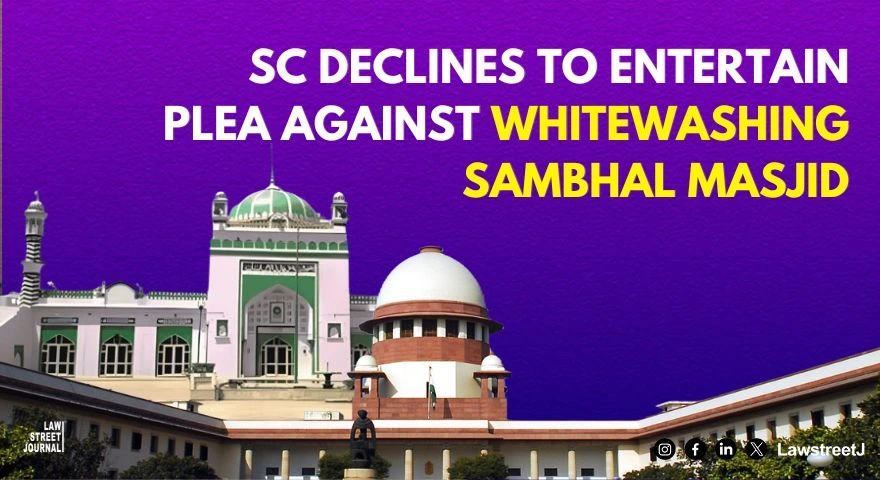NEW DELHI: The Supreme Court on Tuesday declined to consider plea against an order passed by the Allahabad High Court, asking the Archaeological Survey of India to whitewash the Jama Masjid in Uttar Pradesh's Sambhal district, claimed by Hindus as 'Sri Hari Mandir' by Hindus.
Supreme Court Rejects Plea Against Whitewashing of Jama Masjid in Sambhal
A bench of Chief Justice of India Sanjiv Khanna and Justice Sanjay Kumar dismissed the petition filed by Satish Kumar Aggarwal. Advocate Barun Sinha, representing Aggarwal, said his client is not against whitewash.
Tne counsel said the Supreme Court has given complete stay, inspite of that order, this kind of order was passed by the High Court. He contended that the order passed by the High Court would create more confusion and disharmony and the ASI was wrongly asked to whitewash the wall of the mosque.
“We are not inclined to interfere with the impugned judgment (of the high court)," the bench said.
The counsel asked the bench to allow his client to move the High Court in the matter.
Religious Controversy Surrounds Allahabad HC’s Whitewashing Order for Sambhal Mosque
“We are not saying anything. If you want to withdraw then withdraw (the petition)," the bench said.
On March 12, the High Court had asked the ASI to undertake and complete the whitewashing of the mosque within a week.
It had said, "The ASI shall undertake the whitewashing work and complete the same within a period of one week from today”.
The High Court had said that the expenditure incurred in the whitewashing should be borne by the masjid committee, and the same shall be reimbursed within one week after the completion of whitewashing work.
Prior to this, a court-ordered survey of a Mughal-era mosque was undertaken and it led to the violence at Sambhal last year.
The apex court had in December, 2024, while acting separately on a batch of pleas against the Place of Worship Act, 1991, had restrained all courts from entertaining fresh suits and also from passing any interim or final orders in pending cases seeking to reclaim religious places.















